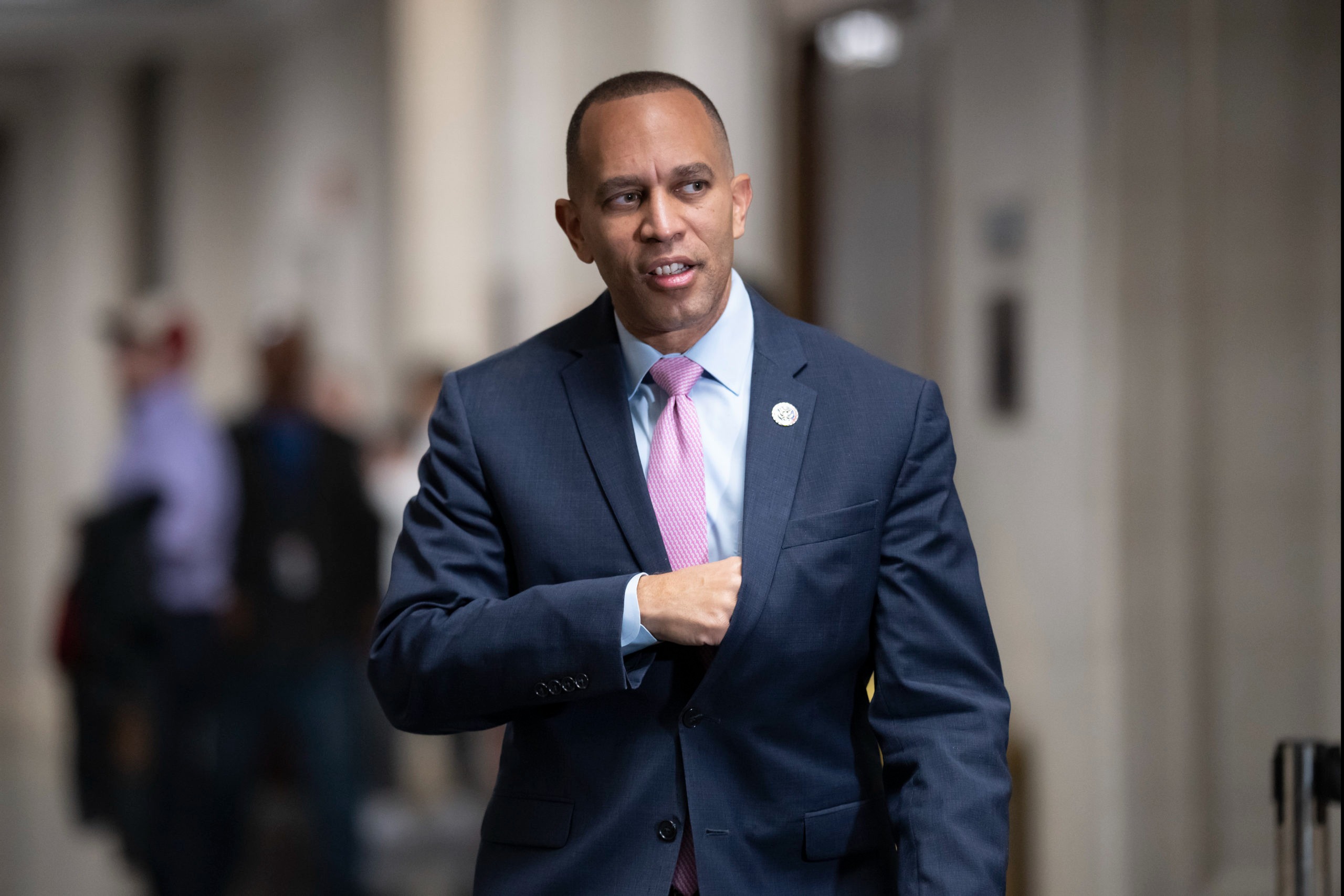House Democratic Leader Hakeem Jeffries emphasized the critical importance of continued support for Ukraine in order to prevent a broader conflict and blamed a “pro-Putin faction” within the Republican Party for the delay in aiding Ukraine’s fight against Russia.
Speaking in an interview with Norah O’Donnell for 60 Minutes, Jeffries underscored the potential ramifications of Ukraine’s fall, warning that it could compel the United States to become directly involved in the conflict. He characterized Russian President Vladimir Putin’s ambitions as seeking to recreate the Soviet Union, posing a remarkable threat to NATO allies.

Hakeem Jeffries (Credits: Politico)
Jeffries highlighted Putin’s history of aggression, citing Russia’s incursion into Georgia and annexation of Crimea in eastern Ukraine as evidence of a broader territorial agenda. He argued that allowing Putin to succeed in Ukraine would embolden further aggression, posing a direct threat to global stability.
Despite recent congressional approval of a $61 billion aid package for Ukraine, Jeffries noted the persistent divisions within the Republican Party over foreign aid to Ukraine. He attributed this divide to a growing pro-Putin faction within the party, which he claimed underestimates Russia’s status as an adversary.
Jeffries cited statements from Republican leaders, including Rep. Michael McCaul and Rep. Mike Turner, who acknowledged the infiltration of Russian propaganda within the party. He also singled out Republican Rep. Marjorie Taylor Greene as a prominent advocate for Russia within the House.

Hakeem Jeffries (Credits: People)
Regarding the Senate, Jeffries pointed out the 15 Republicans who voted against the aid bill for Ukraine, including Sen. J.D. Vance, who questioned the efficacy of American support for Ukraine. Jeffries countered this argument by highlighting the Ukrainian military’s resilience in resisting Russian forces for over two years, characterizing their efforts as a strategic success.
Jeffries emphasized the importance of completing the mission to support Ukraine, likening it to a decisive moment akin to Churchill’s resolve in confronting authoritarian threats.























